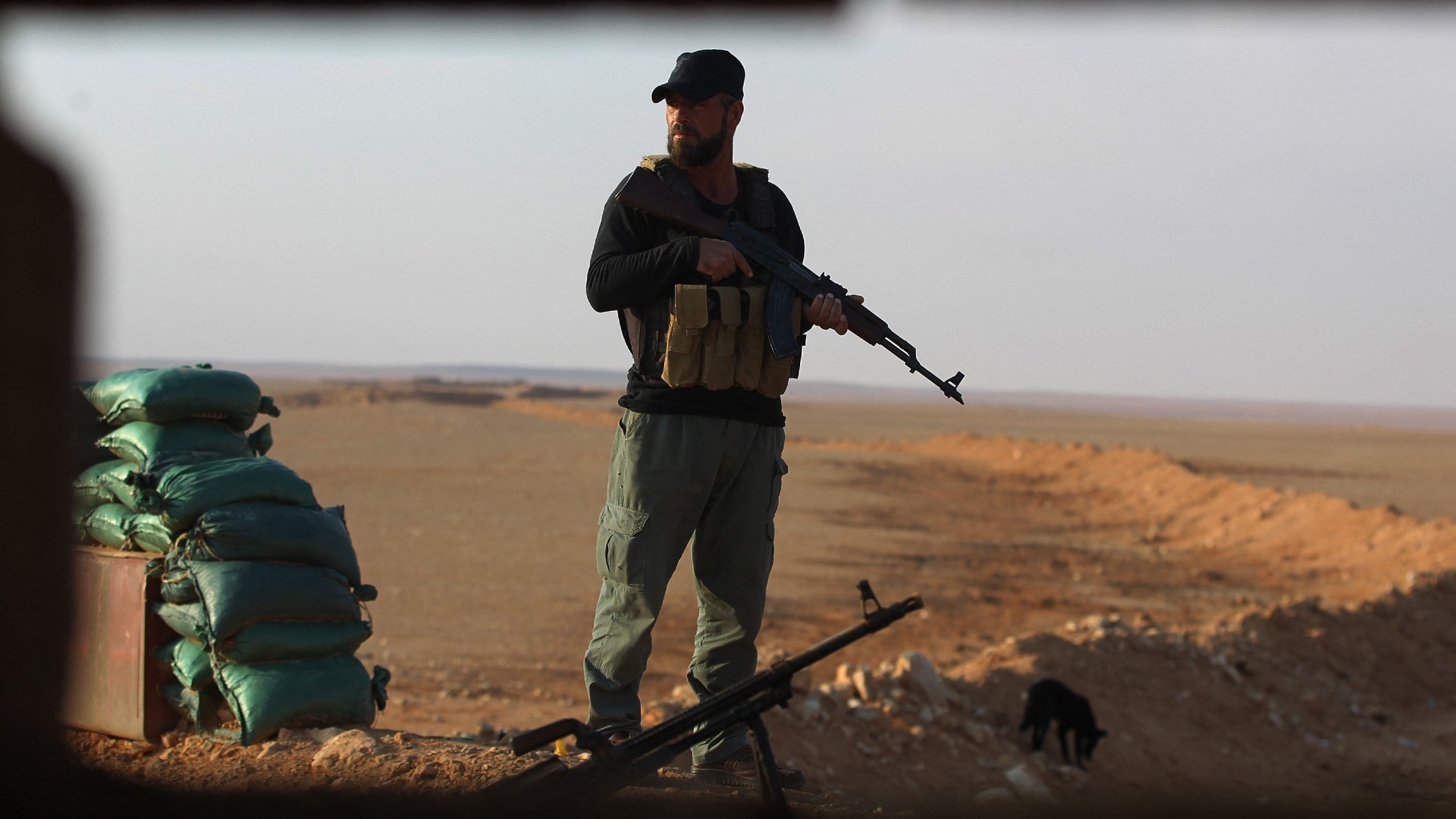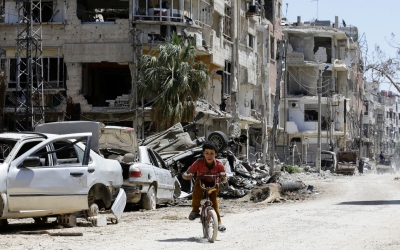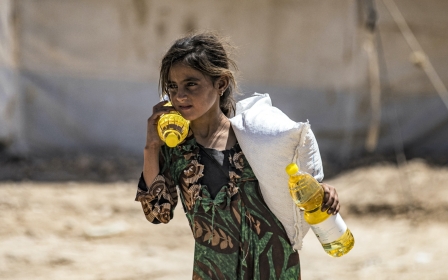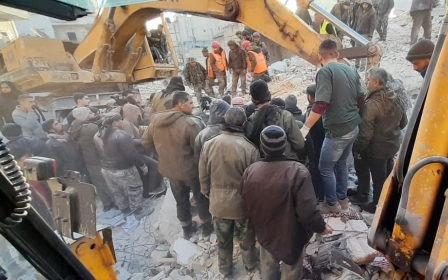Syria: Ten reported killed after air strike on convoy of Iran-backed groups

Ten people have been killed by air strikes that hit a convoy of trucks carrying weapons into eastern Syria from Iraq, according to an activist group.
The strikes, which no country has claimed, killed 10 "truck drivers and their assistants, all of them non-Syrians" on Sunday evening, the Syrian Observatory for Human Rights said.
The UK-based group, which monitors the Syrian war, said they were "killed as a result of unidentified aircraft targeting a convoy of Iran-backed groups, last night".
The strikes reportedly destroyed a convoy of six refrigerated trucks transporting Iranian weapons in the Albu Kamal border region.
Although no one has claimed the attack so far, Israel has carried out hundreds of air and missile strikes against Iran-backed and government forces in Syria, where the US military is also active.
Tehran has long been a major backer of Syrian President Bashar al-Assad and has supported his government through weaponry and with armed organisations from Iraq, Afghanistan and elsewhere.
Activist Omar Abu Layla, who heads the Deir Ezzor 24 media outlet, told AFP on that Sunday's strikes had also hit the headquarters of an Iran-backed group.
"There was heavy damage in the area that was struck," he said.
A pro-Syrian government radio station also reported Sunday that "unidentified war planes targeted, in a number of raids, six refrigerated trucks."
Iran-linked groups
The attack comes shortly after Israel reportedly carried out a drone attack against a defence facility in the Iranian city of Isfahan.
The Wall Street Journal reported on Sunday that the strike was the first to be carried out by Israel since Prime Minister Benjamin Netanyahu returned to power last month.
Israel has long said it is willing to strike Iranian targets if diplomacy fails to curb Tehran's nuclear or missile programmes, but it has a policy of withholding comment on specific incidents.
Pentagon spokesperson Brigadier General Patrick Ryder said no US military forces were involved in strikes on Iran, but declined to comment further.
The Observatory said that two more convoys had entered Syria from Iraq this week, offloading their cargo to pro-Iran groups in the eastern town of al-Mayadeen.
Armed groups with links to Iran, including Lebanon's Hezbollah, have a major presence around the Iraq-Syria border, and are heavily deployed in Syria's Deir Ezzor.
Iran nuclear deal
The attacks in Syria and Iran come amid talks between Jerusalem and Washington on new ways to counter Tehran, including its deepening military cooperation with Russia.
Iran and the P5+1 group of countries - the US, UK, France, Russia, China and Germany - reached a deal in 2015 to put limitations on Tehran’s nuclear programme in return for a lifting of sanctions. In 2018, despite Tehran's compliance with the deal, former US President Donald Trump exited the agreement, reapplying heavy sanctions against Iran.
Israel, along with US Gulf Arab allies, opposed the 2015 deal, with Netanyahu publicly slamming it, straining the relationship with Washington.
Since taking office, President Joe Biden has sought to return the US to the agreement - officially called the Joint Comprehensive Plan of Action (JCPOA) - but the two sides have so far failed to revive the deal despite months of talks in Vienna.
One former Iranian diplomat told MEE last week that domestic and global events, not least Iran's close ally Russia invading Ukraine, also appear to have conspired to undermine the chances of a return to the deal.
“Currently, the US is still willing to sign the deal, but we don’t have too much time," he explained.
"Personally I don’t have any hope as an angry Europe and the US are seemingly waiting for a turning point in the Ukraine war to raise the pressure and... bring back all the dangerous UN security council resolutions against Iran."
Middle East Eye propose une couverture et une analyse indépendantes et incomparables du Moyen-Orient, de l’Afrique du Nord et d’autres régions du monde. Pour en savoir plus sur la reprise de ce contenu et les frais qui s’appliquent, veuillez remplir ce formulaire [en anglais]. Pour en savoir plus sur MEE, cliquez ici [en anglais].





